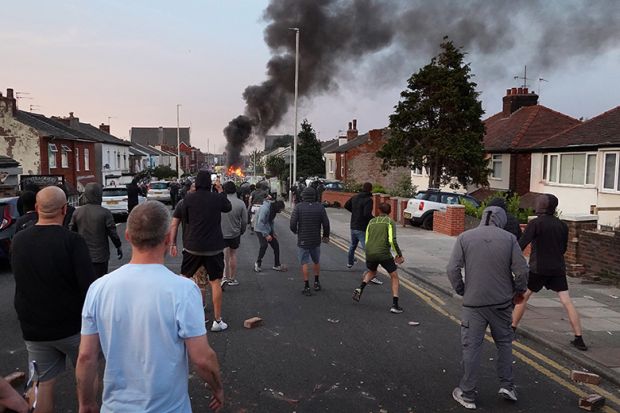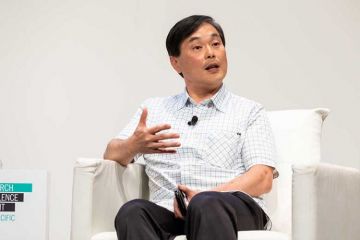Universities have faced a relentless set of challenges over the past few years, but prominent among them is the ways global conflicts shape our campuses.
The emergence of Black Lives Matter in the US, Russia’s invasion of Ukraine, the war in Gaza and anxieties over migration and social cohesion: these are just some of the issues that have put enormous pressure on the ideal of universities as places of dialogue and truth-seeking. As one colleague put it to me, you might not be interested in geopolitics, but geopolitics is interested in you.
Universities have always been places for debating global issues, and rightly so. But what role should they play in helping to shape the wider public discourse, especially when it has become so fraught?
The University of Manchester, for instance, sits at the heart of a deeply diverse and dynamic city, on whose streets and neighbourhoods global events have palpable effects. It follows that we, as a civic university, have a pivotal role to play in connecting world events to local realities – by creating the space for residents, staff and students to confront the moral and political complexities of those events.
There has been intense discussion – including at last October’s Times Higher Education World Academic Summit, held in Manchester – about the stance universities should take on controversial issues. I believe that we must be convenors of dialogue, rather than direct political participants in them. This is often referred to as taking a neutral stance, but that is not right if by that we mean a value-neutral approach.
Instead, we should take a value-informed approach to our convening power and responsibility, with academic freedom, social responsibility and truth-seeking at its core. The reason we value robust debate and dialogue is that they are necessary conditions for uncovering the truth of the matter, however complex and difficult. And the reason we need to do so in a socially responsible and inclusive manner is to ensure all voices are heard.
This “convening-power model” of universities is particularly relevant for civic universities, owing to their distinctive capacity to bring people together and foster deeper understanding between interest groups, while serving as trusted partners for local communities.
I moved to Manchester in July 2024, when fatal stabbings at a children’s dance class in Southport triggered riots and racist attacks, exposing deep anxieties in the community about racism, migration, political extremism, economic disadvantage and national identity. I felt strongly that our university should not only ensure that our staff and students were safe, but also help the community understand what happened and how we could avoid it occurring again.
A paradox of contemporary politics – in the West, at least – is that although there are increasingly tolerant attitudes about many social and cultural issues, their development is occurring at different speeds, and to differing degrees, in different communities, and these differences are widening. This, in turn, is driving increasing social and political polarisation. How do we address these tensions?
In November, we convened a group of about 60 community leaders from Greater Manchester representing a wide array of civic and community organisations, along with some of our academic experts in the social sciences, to explore the causes and aftermath of the riots and what we could do about them, together. As one of the participants put it, we need to ask the hard questions to have the hard conversations. I cannot think of a better way to capture the role of universities in providing a forum for dialogue.
Regarding the factors driving the riots, my colleague Rob Ford, professor of political science, pointed out that while opinion polls suggest most people were deeply opposed to the violence, many were sympathetic to some of the underlying issues. Certainly, political affiliations shaped attitudes, and extremist groups and some politicians took advantage of the situation to whip up emotion. But there were also genuine anxieties in the community about migration and social and cultural change that demand democratic solutions. That is especially true at the local level, where funding cuts have eroded community resources.
Social media often is blamed for fuelling tensions, but participants in our workshop noted that the use of misinformation predates the internet. More importantly, rancour on social media seems more a symptom than a cause. The deeper problem is growing mistrust in core institutions of liberal democracies – the judiciary, media, government and, indeed, universities. Political actors use social media to feed this mistrust, but the deeper question remains: why do people increasingly mistrust liberal institutions and how can we rebuild trust?
Universities have a crucial role to play here. Society needs innovation in social cohesion and connectedness, not just economic growth. One of the participants in our workshop put it well: building trust in our fragmented communities is not only a policy issue, but a civic and social issue. We need to find ways to connect through conversation and mutual understanding, from the ground up, as well as through better policy.
The convening role that civic universities can play is a powerful way of not only getting these conversations going but also sustaining them over time.
Duncan Ivison is president and vice-chancellor of The University of Manchester.
Register to continue
Why register?
- Registration is free and only takes a moment
- Once registered, you can read 3 articles a month
- Sign up for our newsletter
Subscribe
Or subscribe for unlimited access to:
- Unlimited access to news, views, insights & reviews
- Digital editions
- Digital access to THE’s university and college rankings analysis
Already registered or a current subscriber?







